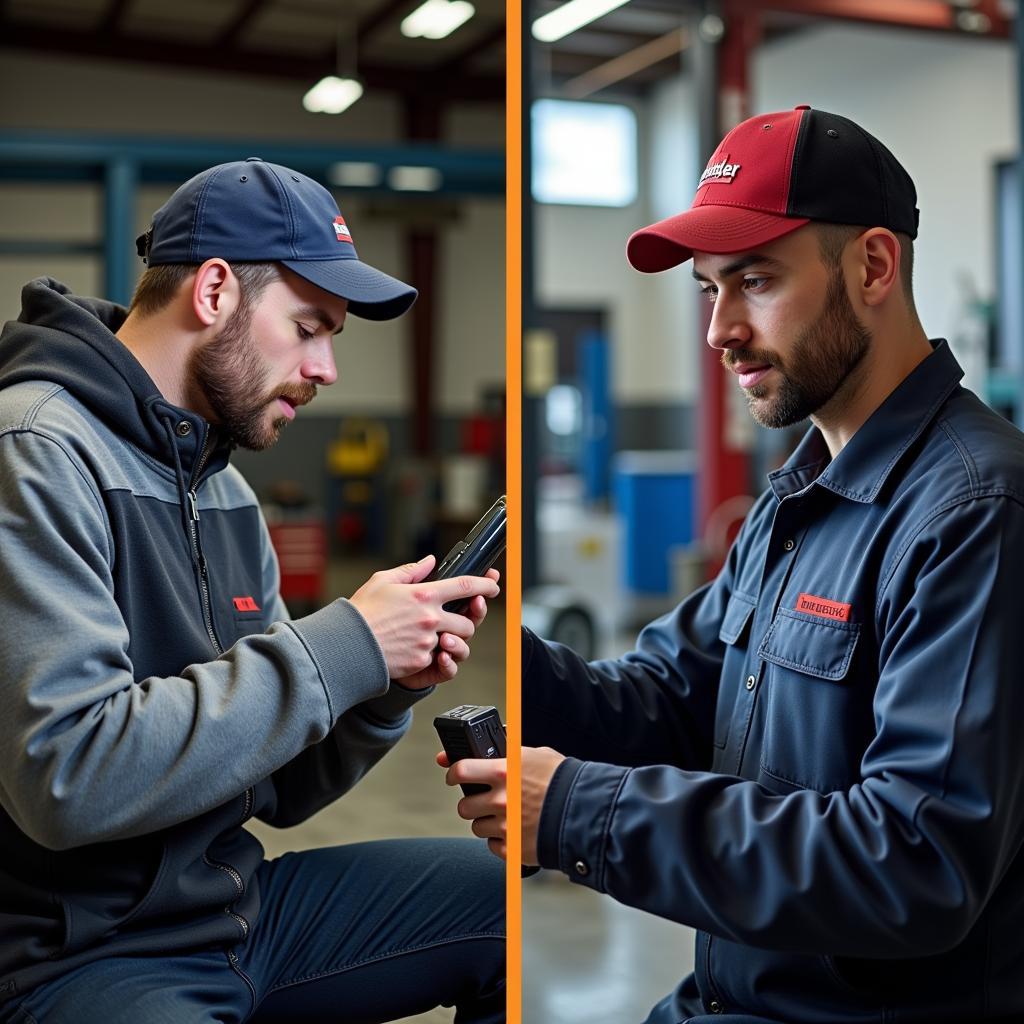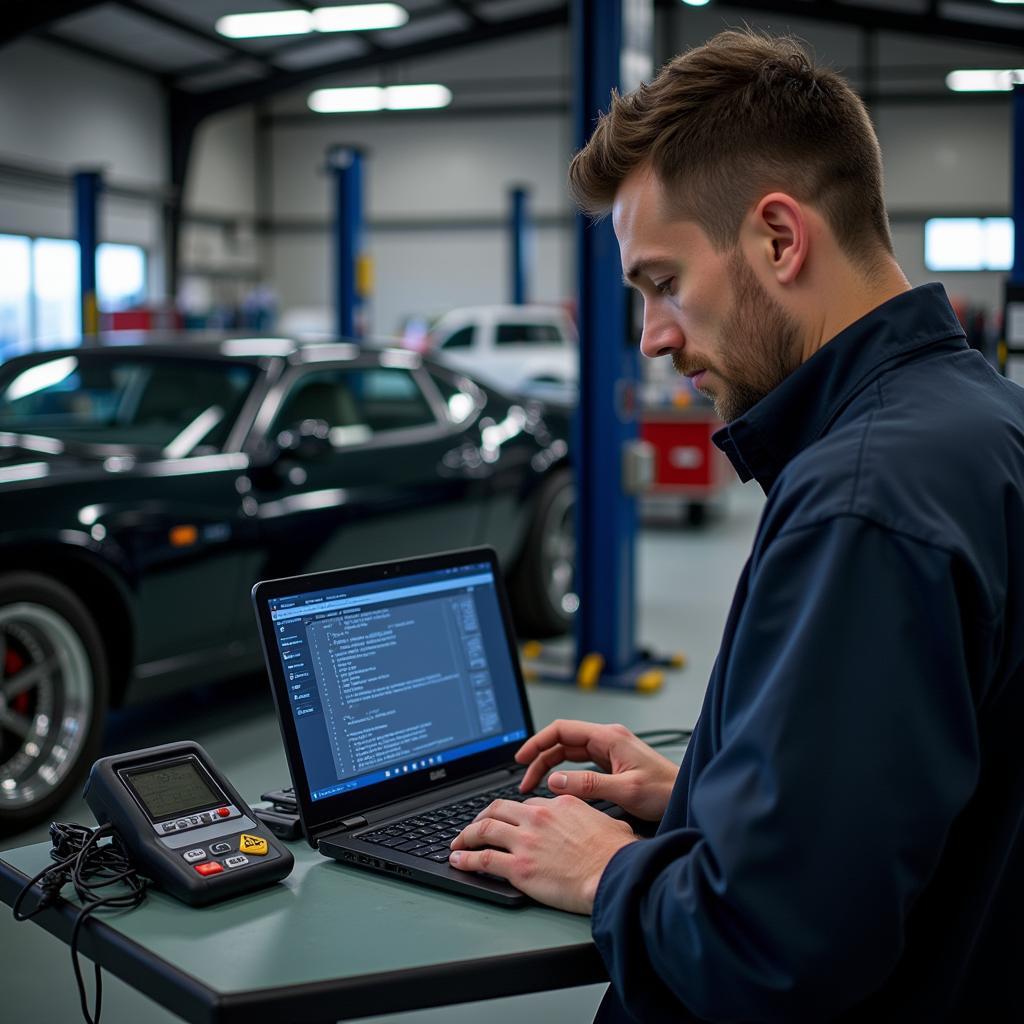Finding the best car diagnostic tool can feel like searching for a needle in a haystack. With countless options flooding the market, each promising to be the ultimate solution, it’s easy to get lost in a sea of technical jargon and flashy features. Whether you’re a seasoned mechanic or a car enthusiast looking to delve into DIY repairs, this comprehensive guide will equip you with the knowledge to make an informed decision. We’ll navigate the intricacies of car diagnostic tools, breaking down their functionalities, advantages, and potential drawbacks, to help you pinpoint the perfect tool for your specific needs and budget.
Understanding Your Diagnostic Needs: A Prerequisite to Finding the Best Tool
Before diving into the vast world of car diagnostic tools, it’s crucial to understand your own requirements. Are you a DIY enthusiast looking to diagnose basic engine problems? Or a professional mechanic requiring advanced functionalities like ECU programming and bidirectional control? Defining your needs is the first step towards finding the perfect tool.  Car Diagnostic Tools for DIYers and Professionals
Car Diagnostic Tools for DIYers and Professionals
Deciphering the Diagnostic Tool Landscape: From Basic to Advanced
Car diagnostic tools range from basic code readers to sophisticated professional-grade systems. Here’s a breakdown:
-
Code Readers: As the name suggests, these entry-level tools read and clear basic diagnostic trouble codes (DTCs) stored in your car’s computer. They are generally budget-friendly and suitable for DIYers addressing minor issues.
-
OBD2 Scanners: A step up from code readers, OBD2 scanners offer live data streaming, allowing you to monitor engine parameters in real time. They also provide more detailed code definitions and often include additional functionalities like freeze frame data and emissions readiness checks.
-
Professional-Grade Scan Tools: These are the heavy hitters of the diagnostic world, offering advanced functionalities like bidirectional control (allowing you to command components), ECU programming, key programming, and access to manufacturer-specific systems. These tools are typically used by professional mechanics and come with a heftier price tag.
Key Factors to Consider When Choosing a Diagnostic Tool
With a basic understanding of the types of tools available, let’s explore the key factors to consider when making your decision:
- Vehicle Compatibility: Ensure the tool you choose is compatible with your car’s make, model, and year.
- Functionality: Clearly define the features you need. Do you require basic code reading, live data, or more advanced functionalities?
- Software Updates: Regular software updates are crucial to ensure compatibility with newer car models and to access the latest features.
- User Interface: Opt for a tool with an intuitive and user-friendly interface that aligns with your technical expertise.
- Budget: Diagnostic tools vary widely in price. Set a realistic budget and explore options within your range.
- Brand Reputation: Choose reputable brands known for reliability, accuracy, and excellent customer support. how to get a free car diagnostic
Top Car Diagnostic Tool Recommendations for 2023
Based on extensive research and user reviews, here’s a curated list of some of the best car diagnostic tools available in 2023:
For DIY Enthusiasts:
- Ancel AD310: This budget-friendly code reader offers basic DTC reading and clearing capabilities, making it suitable for DIYers addressing minor engine issues.
- Innova 3100j: A step up from basic code readers, this OBD2 scanner offers live data streaming, freeze frame data, and emissions readiness checks, providing a more comprehensive diagnostic experience.
For Professional Mechanics:
- Autel MaxiSys MS908S Pro: This high-end scan tool offers advanced functionalities like bidirectional control, ECU programming, and key programming, making it a comprehensive solution for professional mechanics.
- Launch X431 V+: Another powerhouse in the professional-grade category, the Launch X431 V+ offers a wide range of functionalities, including comprehensive system coverage, advanced coding capabilities, and extensive special functions.
Beyond the Tool: The Importance of Knowledge and Expertise
While having the right car diagnostic tool is crucial, it’s essential to remember that it’s just a tool. The real power lies in your ability to interpret the data, diagnose the issue accurately, and implement the correct solution. Invest time in understanding car systems, diagnostic procedures, and repair techniques.
“Having a powerful diagnostic tool is like having a scalpel in the hands of a surgeon,” says Jake Carter, a seasoned automotive engineer with over 20 years of experience. “It’s useless without the knowledge and expertise to wield it effectively.”  Mechanic Analyzing Diagnostic Data
Mechanic Analyzing Diagnostic Data
Conclusion: Making the Right Choice for Your Diagnostic Needs
Choosing the best car diagnostic tool is a personalized decision that hinges on your individual needs, budget, and technical expertise. Carefully evaluate your requirements, explore the available options, and invest in a tool that empowers you to maintain your vehicle effectively. Remember, a well-chosen diagnostic tool, coupled with the right knowledge, can save you time, money, and unnecessary headaches in the long run.
FAQs:
1. What is the easiest car diagnostic tool to use?
For beginners, code readers like the Ancel AD310 offer a simple and user-friendly experience. They focus on reading and clearing basic trouble codes without overwhelming you with complex features.
2. Can I use a professional-grade scan tool for DIY repairs?
While possible, professional-grade scan tools can be overly complex for basic DIY repairs. Their advanced functionalities and higher price tag might not be justified for occasional use.
3. How often do car diagnostic tools need software updates?
The frequency of software updates varies depending on the brand and model. On average, most reputable brands release updates every few months to ensure compatibility with newer car models and to introduce new features.
4. Are there any free car diagnostic tools available?
While some free or freemium apps offer basic diagnostic functionalities, their accuracy and reliability can be questionable. Investing in a reputable paid tool is generally recommended for accurate and reliable results.
5. Can a car diagnostic tool fix my car?
No, diagnostic tools are designed to identify issues, not fix them. They provide valuable information about your car’s health, but the actual repairs require mechanical expertise and appropriate tools.
Need further assistance?
For personalized advice and support in choosing the perfect car diagnostic tool for your needs, feel free to contact our team of experts via WhatsApp: +1(641)206-8880, Email: [email protected]. We offer 24/7 customer support to ensure you find the ideal solution for your automotive diagnostic needs. You might also find these articles helpful: how much do car diagnostics cost, what is the best diagnostic software for cars, how to do pinpoint diagnostics on a car, or how long for diagnostic test on car.

Leave a Reply